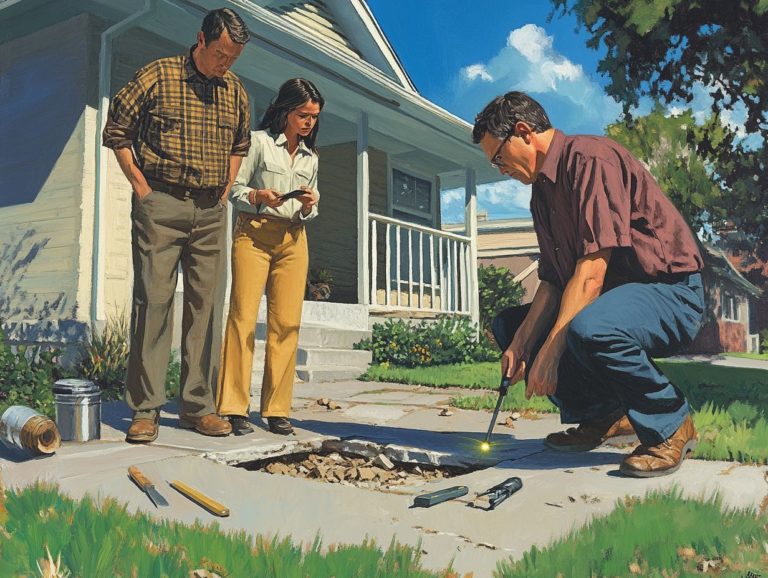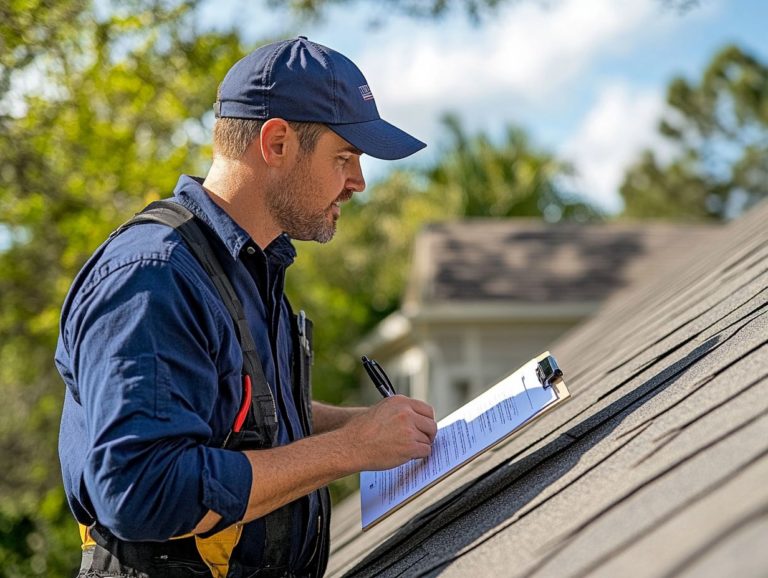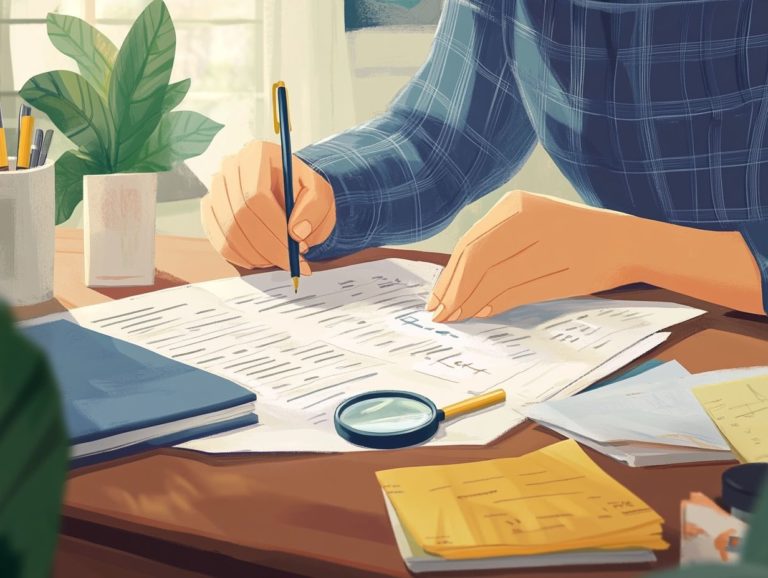The Value of Home Inspections for Real Estate Agents
Home inspections are essential to the real estate process, providing invaluable insights that safeguard both buyers and sellers.
This article delves into what a home inspection involves and underscores its significance for real estate agents. It examines the agent’s role throughout the entire process, from prepping clients for inspections to negotiating repairs and recognizing common issues that may surface.
It also offers tips on selecting a dependable inspector, arming agents with the expertise necessary to navigate home inspections with confidence and ease.
Contents
- Key Takeaways:
- Why Understanding Home Inspections Matters
- The Role of a Real Estate Agent in the Home Inspection Process
- Benefits of Home Inspections for Real Estate Agents
- Common Issues Found in Home Inspections
- Tips for Choosing a Reliable Home Inspector
- Frequently Asked Questions
- What is the value of home inspections for real estate agents?
- How do home inspections benefit real estate agents?
- Do home inspections increase the value of a property?
- Should real estate agents attend home inspections?
- What happens if issues are found during a home inspection?
- Are home inspections required for all real estate transactions?
Key Takeaways:
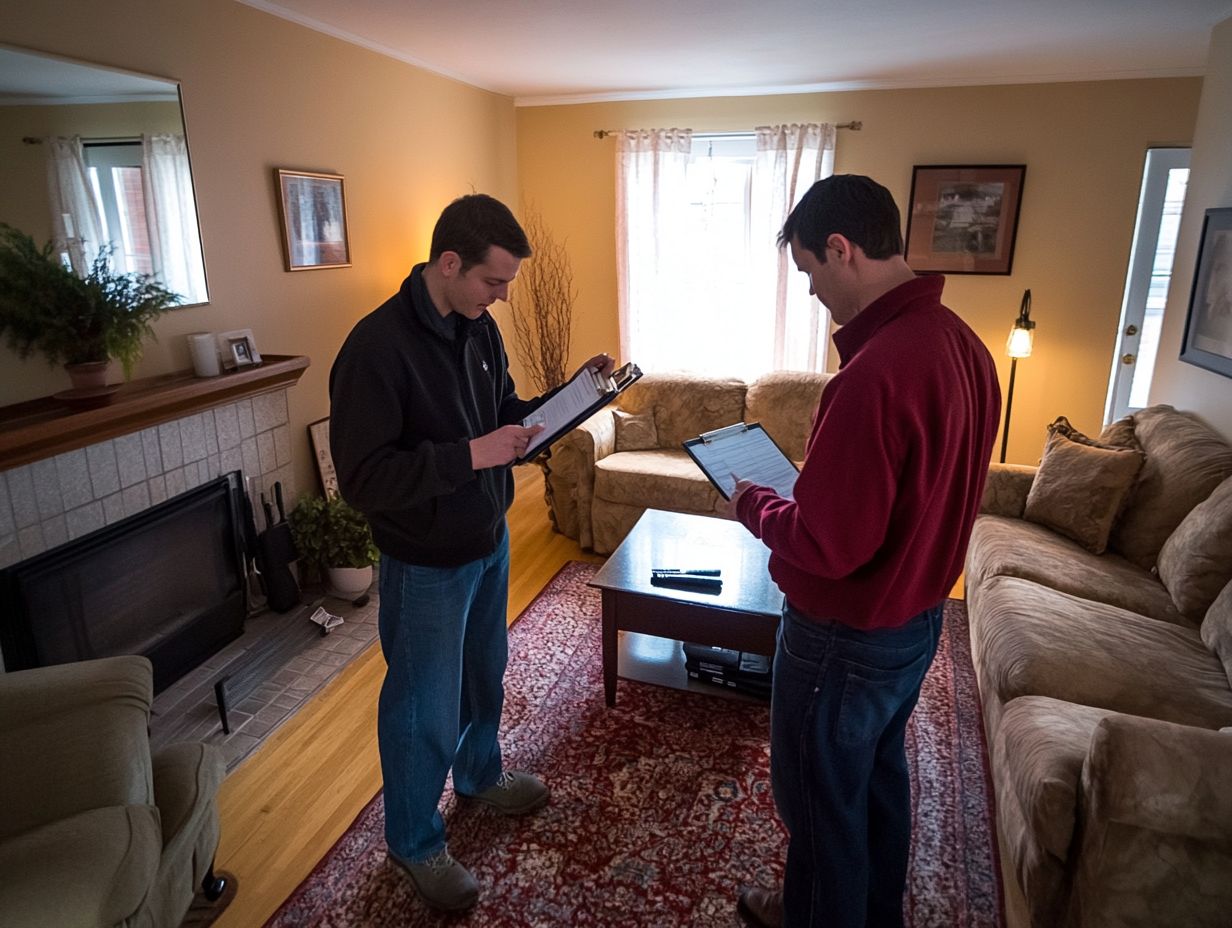
- Home inspections are crucial for real estate agents as they provide valuable information about the condition of a property.
- Real estate agents play a vital role in the home inspection process by preparing their clients beforehand and attending the inspection.
- Understanding common issues found in home inspections helps agents negotiate repairs and pricing effectively.
- Choosing a reliable home inspector based on qualifications, experience, and references is key to ensuring smooth transactions.
Why Understanding Home Inspections Matters
Grasping the details of home inspections is essential for anyone navigating real estate transactions be it you as a buyer, seller, or real estate agent.
A home inspection serves as a thorough evaluation of the property’s condition before the closing process. Skilled home inspectors dive deep into various elements, meticulously assessing structural integrity, electrical systems, plumbing issues, and even potential environmental threats like mold and termites.
This comprehensive process not only offers buyers the assurance they seek but also helps sellers meet their responsibilities, ensuring all pertinent issues are documented in a detailed inspection report.
What Happens During a Home Inspection?
A home inspection is an in-depth visual assessment of a property’s condition, carried out by a qualified home inspector. This meticulous process offers you invaluable insights into the current state of the home, pinpointing any existing or potential issues.
During your home inspection, several critical elements will be evaluated, including:
- the roof
- plumbing
- electrical systems
- heating, ventilation, and air conditioning systems
- the foundational structure
Each component undergoes careful scrutiny for signs of wear and tear, safety hazards, and compliance with local building codes. It s crucial for home inspectors to possess the right certifications and relevant experience to guarantee a thorough evaluation.
The inspection report generated afterward becomes an essential document for both buyers and sellers. It highlights the property s strengths and suggests necessary repairs or maintenance, ultimately giving you the power to make informed decisions throughout the real estate process.
Why are Home Inspections Important for Real Estate Agents?
Home inspections are essential for you as a real estate agent, allowing you to make informed decisions during property transactions and providing a clear picture of a home’s condition. Understanding the benefits of home inspections can further enhance your expertise.
By facilitating these inspections, you protect both buyers and sellers, ensuring everyone is aware of underlying issues. These inspections are pivotal in negotiations, enabling you to advocate effectively for your clients.
When buyers receive a detailed inspection report, they gain the peace of mind necessary to make confident offers. Sellers are equipped with a roadmap to tackle potential concerns before listing their property.
This transparency builds trust and reduces misunderstandings, ultimately leading to smoother transactions. By consistently delivering accurate inspection results, you fulfill a crucial obligation to both buyers and sellers, reinforcing your reputation and paving the way for future business opportunities.
The Role of a Real Estate Agent in the Home Inspection Process
The role of a real estate agent in the home inspection process is quite intricate. They serve as vital intermediaries between buyers and sellers, ensuring that everyone is well-prepared for the inspection.
You ll find that agents facilitate clear communication, assist in drafting the inspection agreement, and guide you through the various fees that might come up. Their involvement not only provides you with peace of mind but also enhances the overall integrity of the transaction.
Ready to ensure a smooth transaction? Let s get started with your home inspection today!
Preparing the Seller and Buyer for the Inspection

Preparing yourself and the buyer for the home inspection is crucial as a real estate agent. It paves the way for a smoother process and establishes realistic expectations.
This preparation involves guiding the seller through their obligations and recommending improvements to enhance the property’s condition.
To kick things off effectively, set clear timelines that detail when inspections will take place. This gives sellers ample opportunity to tackle any potential issues.
It s vital to discuss the inspection agreements in depth. This clarity helps everyone understand what to expect during the evaluation.
Advising sellers on necessary repairs, like fixing leaky faucets or updating outdated electrical systems, can significantly boost the property s appeal.
By steering sellers through these essential steps, you can minimize surprises and foster a more favorable outcome for everyone involved.
Attending the Inspection and Communicating Findings
Your presence as a real estate agent during the home inspection is essential. It allows for effective communication and a clear understanding of the findings.
By attending the inspection, you can relay immediate insights from the home inspector to your buyers. This fosters a sense of peace and ensures that any necessary repairs are addressed without delay.
This involvement makes the inspection report easier to understand and allows your buyers to ask questions right on the spot. With your expertise, you can clarify potential issues, recommend reliable contractors for any required repairs, and facilitate discussions about ways to handle any concerns that arise.
Ultimately, having a knowledgeable representative by their side during this crucial step reassures buyers, empowering them to make informed decisions about their new home. This way, they can confidently navigate any challenges that may pop up during the inspection process.
Benefits of Home Inspections for Real Estate Agents
Home inspections offer a wealth of advantages for real estate agents, enhancing your ability to serve clients with excellence while understanding the role of agents in home inspections can instill confidence in buyers.
By orchestrating thorough inspections, you can pinpoint issues early. This not only aids in negotiations but also builds trust between property owners and potential buyers.
This proactive approach enhances your professional reputation and ensures a smoother transaction process.
Protecting the Interests of the Client
Protecting your interests is paramount in real estate, and home inspections play a crucial role in that endeavor. By ensuring every aspect of the property is thoroughly evaluated, you can obtain an inspection report that highlights potential risks and liability limits.
This thorough approach builds trust and clarity, which is crucial for both buyers and sellers in making informed decisions.
For buyers, a meticulous inspection can uncover hidden issues that might lead to significant financial burdens later. This provides peace of mind as they navigate the property buying process. Conversely, sellers benefit from well-documented findings, streamlining negotiations and boosting confidence in potential buyers.
Ultimately, engaging in a proactive inspection reveals the true condition of the property, safeguarding the interests of everyone involved and minimizing the chances of disputes down the line.
Negotiating Repairs and Pricing
Negotiating repairs and pricing is often one of the most critical aspects of your real estate transaction. Home inspections play a significant role in shaping these discussions.
A comprehensive inspection report empowers agents to advocate on your behalf, ensuring that necessary repairs are addressed and fair pricing is established.
By thoroughly reviewing the findings, you gain a clearer understanding of the property s condition. This allows you to make informed decisions during negotiations.
It s essential for both you and the seller to approach these discussions with transparency and a willingness to compromise. Best practices include creating a prioritized list of necessary repairs and sharing it with the other party.
When negotiating, remain flexible yet firm, emphasizing how these repairs contribute not only to your peace of mind but also to the property’s long-term value.
This collaborative approach fosters goodwill and leads to well-rounded conversations that take into account both your needs and the seller s perspective.
Common Issues Found in Home Inspections
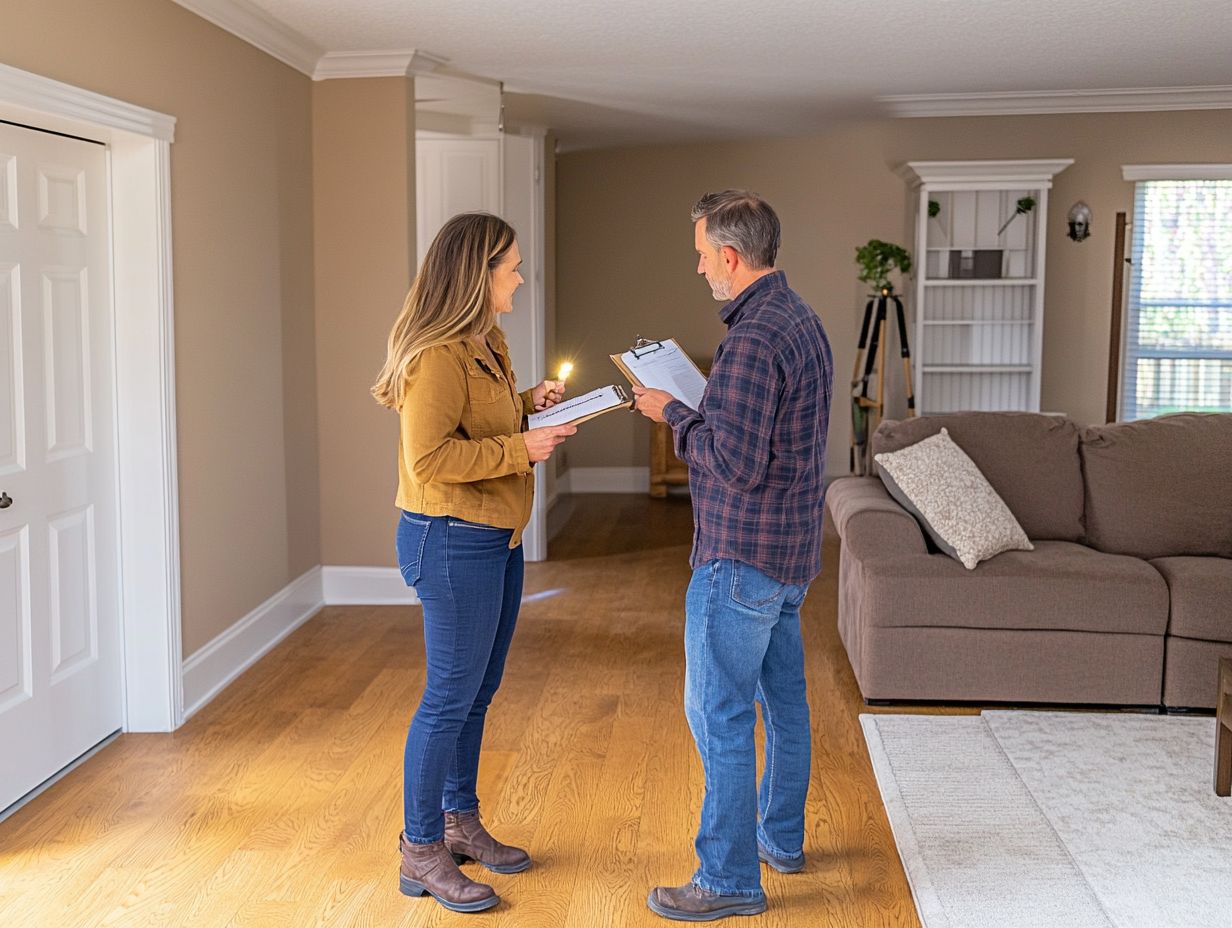
Common issues uncovered during home inspections can vary dramatically. They often include structural concerns, electrical faults, and plumbing challenges.
Recognizing these hazards is essential for both buyers and sellers. These issues can profoundly affect the property’s overall value and safety.
Structural, Electrical, and Plumbing Problems
During a home inspection, you will often encounter structural issues, electrical problems, and plumbing concerns. These can significantly impact your property’s condition.
Understanding these issues is crucial as you weigh your investment and consider any necessary repairs.
For instance, structural issues like foundation cracks can lead to serious safety hazards and costly fixes. This can potentially diminish your property’s value.
Similarly, outdated wiring or overloaded circuits can present serious fire risks. This raises both safety concerns and potential insurance complications.
On the plumbing front, issues such as leaky pipes or outdated fixtures can lead to mold growth and water damage. This jeopardizes the integrity of your home.
Comprehensive home inspections are essential. They not only pinpoint immediate repair needs but also offer valuable insights into long-term maintenance and overall value retention.
Environmental Hazards
Environmental hazards like mold, radon, and termites should be top of mind during home inspections. These can present significant health risks to anyone living there.
By identifying these hazards, you protect yourself as a buyer and help sellers mitigate potential liabilities before the deal closes.
It is vital to inspect for lead paint, asbestos, and water contamination. This is especially important in older properties where these materials were commonly used.
Ignoring these hazards can lead to serious health issues for you and your family. The long-term effects can include respiratory issues and developmental disorders in children.
Managing these risks effectively often means conducting thorough testing, fixing problems, and engaging in ongoing monitoring to ensure safety.
By proactively addressing these environmental concerns, both buyers and sellers contribute to a safer living environment. This paves the way for a smoother transaction and enhances confidence in the property s integrity.
Tips for Choosing a Reliable Home Inspector
Selecting a reliable home inspector is essential for facilitating a successful home inspection process. Their qualifications and experience significantly influence the quality of the assessment.
As a prospective homebuyer, prioritize inspectors who come highly recommended. Look for those with a proven track record in the field.
This strategic choice can provide you with peace of mind and confidence in your investment.
Qualifications and Experience
When selecting a home inspector, consider their qualifications and experience. Particularly, check if they hold certifications from reputable organizations like the American Society of Home Inspectors.
An experienced inspector is far more likely to provide a thorough analysis of the property’s condition. This comprehensive evaluation can reveal hidden issues that might escape your notice.
Spotting these issues can potentially save you from costly repairs later on.
Home inspectors should have relevant certifications that showcase their proficiency in safety standards, structural integrity, and environmental health.
Their practical experience enhances their ability to spot common problems. This ensures you receive a detailed and informative report.
A well-qualified inspector not only understands local building codes but can also offer valuable insights and recommendations for future maintenance.
Their expertise is critical during the home-buying process, helping you make informed decisions.
Frequently Asked Questions
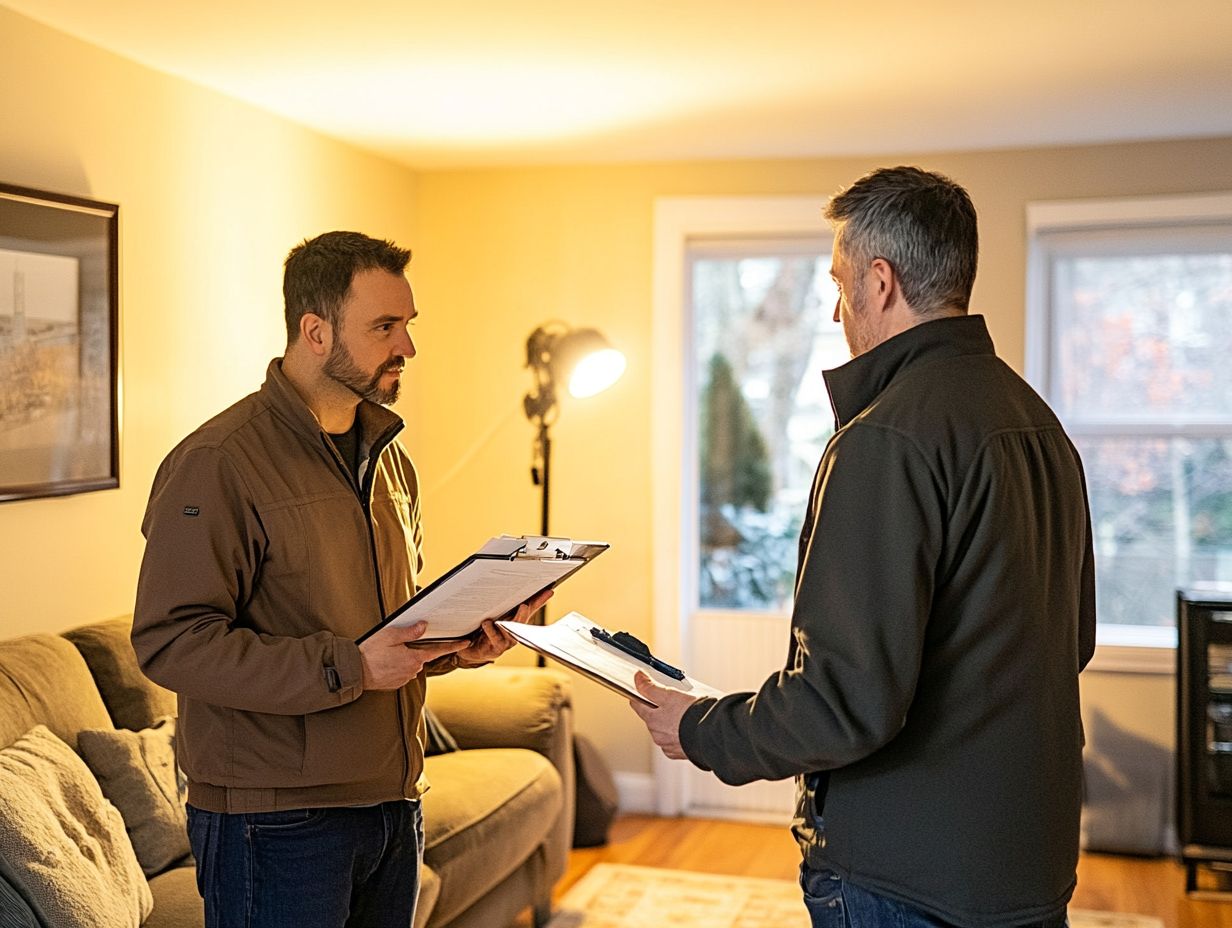
What is the value of home inspections for real estate agents?
Home inspections give agents key insights into a property’s condition. This information helps agents make informed decisions and understand the necessity of home inspections to better assist their clients throughout the buying and selling process.
How do home inspections benefit real estate agents?
Home inspections can save real estate agents time and money by identifying potential issues with a property before they escalate. They also help agents avoid legal problems by ensuring all parties are aware of any issues with the property.
Do home inspections increase the value of a property?
Home inspections don t directly increase property value. However, they boost buyer confidence, which may lead to a higher selling price.
A smoother transaction benefits both the buyer and the real estate agent.
Should real estate agents attend home inspections?
While it s not mandatory for real estate agents to attend home inspections, it s highly recommended. Attending the inspection helps agents gather important information, ask questions, and address any concerns with their clients.
What happens if issues are found during a home inspection?
If issues arise, real estate agents can collaborate with their clients to negotiate repairs or price adjustments. This approach ensures a fair and successful transaction.
Are home inspections required for all real estate transactions?
While home inspections are not legally required, they are strongly recommended for all real estate transactions. They protect both buyers and sellers, ensuring a smooth and successful process.
Don’t miss out home inspections can truly protect your investment!
Ready to ensure a smooth transaction? Schedule your home inspection today!

